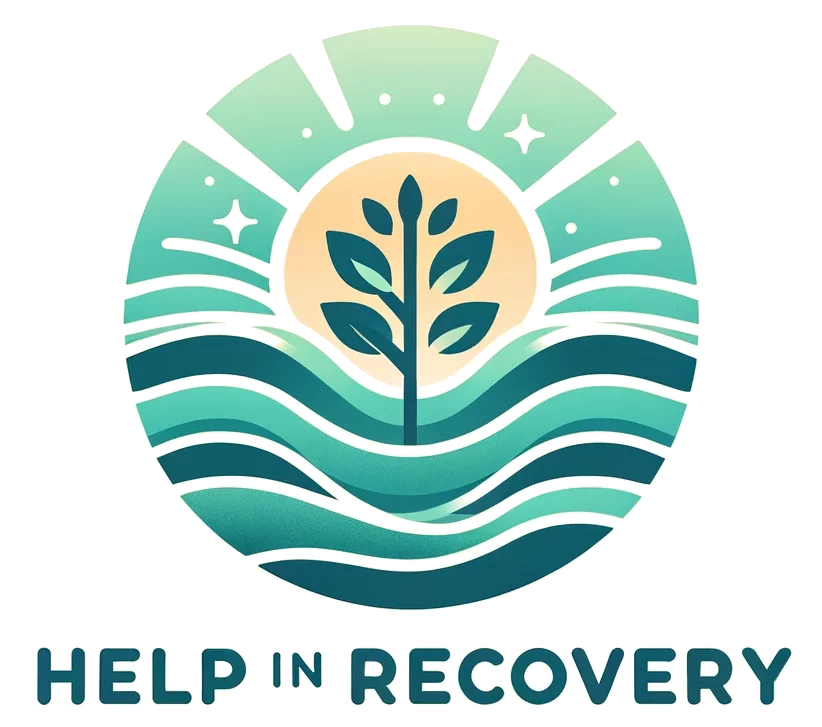The First Step: What Recovery Means
Recovery from addiction begins with a crucial first step: acknowledging the need for change and the courage to act upon it. This initial decision is the hardest yet the most critical part of the journey towards healing. It’s a commitment to leave behind harmful patterns and progress towards a healthier, more fulfilling life. Recovery is not just about stopping substance use; it’s about reclaiming control, restoring health, and reshaping one’s existence.
In this article, we will explore what recovery involves, the science of addiction, the psychological and social dimensions of recovery, and the support available to those embarking on this transformative path.
The Science Behind Taking the First Step
Understanding the science of addiction is pivotal in appreciating the significance of the first step towards recovery. Addiction affects the brain’s reward system, leading to a compulsion for substance use despite harmful consequences. When someone decides to take that first step, it involves a conscious effort to break this cycle of dependence.
Research has shown that the brain has a remarkable capacity to recover with sustained abstinence. Brain imaging studies reveal changes in the density of dopamine transporters, indicating the brain’s ability to heal from the structural and functional damages caused by addiction. This recovery can start to manifest as soon as one stops using substances, which is often the most challenging phase due to withdrawal symptoms and the intense cravings that accompany them.
However, these initial hurdles are a testament to the body beginning to heal. Medications can be used to manage withdrawal symptoms, and behavioural therapies are introduced to support the brain’s adaptation to the absence of drugs. The first step is not just about stopping drug use; it’s about starting a journey towards allowing the brain to heal and function without the influence of substances.
Understanding that recovery is a treatable process helps in destigmatizing addiction and encourages individuals to seek help. Like any other chronic illness, addiction can be managed successfully with the right treatment plan.
By taking the first step, individuals open the door to a path where recovery is not just a possibility but a reality supported by science.
Psychological Strategies in Recovery
Recovery is as much a psychological journey as it is a physical one. From the moment an individual takes that first step, they engage in a mental battle against old habits and cravings. It’s a crucial time when psychological strategies play a significant role in maintaining the path to sobriety.
Delaying Tactics and Mindful Awareness
One of the first strategies is learning the art of delay. Cravings are intense but not permanent; they tend to diminish over time. Training oneself to wait out the urge to use, often just for 15 minutes, can be incredibly effective. This tactic leverages the transient nature of cravings and empowers individuals to gain control over their impulses.
Escape Routes and Avoidance Techniques
Planning escape routes from high-risk situations is another early psychological strategy. Whether it’s avoiding certain places or people known to trigger substance use or having a plan to leave uncomfortable situations, these techniques help individuals avoid relapse.
Distraction and Substitution
Distraction is a powerful tool in early recovery. When cravings hit, engaging in an alternative activity—be it listening to music, exercising, or any hobby—can redirect the mind and provide a buffer against the urge to relapse.
Building a Recovery Identity
Part of the psychological journey in recovery is developing a new identity that is not centred around substance use. It involves cultivating a self-view that aligns with one’s values and goals. This new identity reinforces the recovery process and becomes a source of strength and pride.
The Role of Hope and Optimism
Hope and optimism are not just feel-good concepts; they are tangible psychological pillars in recovery. Fostering a belief in oneself and the possibility of a better future is crucial. Hope can act as a buffer against despair and fuel the effort required to maintain recovery.
By integrating these psychological strategies into their daily lives, individuals can reinforce their commitment to recovery and build a strong foundation for lasting change.
Social Dimensions of Recovery
The social environment is crucial in sustaining recovery, especially after taking that first courageous step. Recovery is not a journey taken in isolation; the support of a community, family, and friends is pivotal in maintaining sobriety and rebuilding a life free from addiction.
The Power of Connection
Connecting with others on the path to recovery can provide invaluable support and encouragement. Recovery groups and meetings offer a safe space to share experiences, challenges, and victories. This sense of community helps diminish the feelings of isolation that often accompany addiction.
Recovery-Oriented Systems of Care
Recovery-oriented systems of care are designed to support individuals throughout their journey. These systems include outpatient care, recovery housing, and recovery coaching, providing a comprehensive support network. They focus on long-term recovery management, recognizing that it is a continuous process.
The Role of Family and Friends
The involvement of family and friends can significantly impact the success of recovery. Educating loved ones about the nature of addiction and the recovery process can foster a supportive home environment. Family therapy and support groups for families can also play a critical role in healing and maintaining relationships.
Social and Recreational Activities
Engaging in social and recreational activities that do not involve substance use can offer positive outlets and opportunities to build new, healthy relationships. Recovery-specific cafes, sports leagues, and creative arts programs provide environments where individuals can enjoy leisure time without the temptation of substance use.
Digital and Online Support
In today’s connected world, online forums and social media groups offer additional support layers. These platforms can provide access to resources, advice, and encouragement anytime, breaking down geographical barriers to support.
The social dimensions of recovery emphasize the importance of building and maintaining relationships that support sobriety. By leveraging the strength found in communities, recovery-oriented care systems, and the support of loved ones, individuals can reinforce their commitment to recovery and navigate the challenges of taking the first step towards a new life.
Treatment Methods and Their Effectiveness
The proper treatment method is a critical decision individuals face after taking the first step towards recovery. The effectiveness of treatment can vary greatly depending on the individual’s unique circumstances, including the substance used, the duration of addiction, and personal health factors.
Evidence-Based Approaches
Research supports a variety of treatment methods for addiction recovery, including both pharmacological and behavioural therapies. Medications such as Methadone, Buprenorphine, and Naltrexone have proven effective in managing withdrawal symptoms and reducing the cravings associated with opioid addiction. For alcohol dependence, medications like Disulfiram, Naltrexone, and Acamprosate can be used to support abstinence and reduce relapse risk.
Behavioural therapies, such as Cognitive Behavioral Therapy (CBT), Motivational Interviewing (MI), and Contingency Management (CM), are widely used to help individuals develop coping strategies, improve motivation for change, and reinforce positive behaviours.
Personalized Treatment Plans
The consensus among health professionals is that treatment should be personalized to address each patient’s specific needs. A comprehensive treatment plan often includes a combination of medication-assisted treatment (MAT) and behavioural therapies alongside support for any co-occurring mental health conditions.
The Role of Supportive Care
In addition to medical and psychological treatments, supportive care plays a crucial role in recovery. This can include recovery housing, employment support, and educational services to help individuals rebuild their lives and reintegrate into society.
Continuum of Care
Recovery is viewed as a long-term process that requires ongoing support and care. Aftercare programs and relapse prevention planning are essential components of successful treatment, ensuring individuals have the resources and support network they need to maintain sobriety.
For more detailed information on treatment options and finding the right approach, the National Institute on Drug Abuse (NIDA) offers extensive resources and guidelines on the principles of effective treatment.
The Role of Hope and Empowerment in Recovery
Empowerment and hope are foundational elements in the recovery journey, starting from the first step. These psychological factors are critical in sustaining the motivation needed for long-term recovery and in building a life that transcends mere abstinence from substance use.
Cultivating Hope
Hope in the context of recovery is the belief that change is possible and that a better life lies ahead. This outlook can significantly influence an individual’s commitment to recovery, encouraging persistence even when faced with challenges. Strategies to nurture hope include setting achievable goals, celebrating small victories, and witnessing the success stories of others who have overcome addiction.
Empowerment Through Self-Efficacy
Empowerment in recovery involves developing a sense of self-efficacy—the confidence in one’s ability to exert control over one’s own motivation, behaviour, and social environment. Encouraging self-efficacy can be achieved through skills training, therapy, and participation in decision-making processes related to treatment and recovery planning.
The CHIME Framework
The CHIME framework—Connection, Hope, Identity, Meaning, and Empowerment—outlines critical components of the recovery process. It emphasizes the importance of social connections, fostering hope, developing a positive identity, finding meaning in life, and feeling empowered as integral to successful recovery.
Recovery as a Personal Journey
Recovery is a highly personal journey that requires an individualized approach. Encouraging personal responsibility, providing education on health and wellness, and offering choices in treatment can all enhance feelings of empowerment. This, in turn, helps individuals to take active roles in their recovery process, making informed decisions that align with their values and goals.
Support Systems and Empowerment
Support systems—whether in the form of professional healthcare providers, recovery communities, or family and friends—are also crucial in fostering empowerment. These support networks can offer encouragement, understanding, and resources, making the recovery journey less isolating and more manageable.
By emphasizing hope and empowerment from the outset, individuals in recovery can build resilience and a sense of agency, essential for navigating the ups and downs of their journey towards wellness.
Understanding Relapse as Part of the Recovery Process
Relapse is often seen as a failure in the recovery journey, but understanding it as a part of the process can provide valuable insights and strategies for long-term success. Recognizing the potential for relapse from the outset—acknowledging it as a common aspect of the chronic nature of addiction—helps in preparing and responding effectively should it occur.
Relapse Rates and Comparison
Research shows that relapse rates for substance use disorders are similar to those of other chronic illnesses, such as diabetes, hypertension, and asthma. This comparison is crucial in destigmatizing relapse, highlighting the need for ongoing management rather than a one-time cure. Viewing recovery as a continuous journey where setbacks can serve as learning opportunities for further growth is essential.
Strategies for Relapse Prevention
Preventing relapse starts with recognizing the early warning signs and triggers, which can be emotional, physical, or situational. Developing coping strategies, such as stress management techniques, avoiding high-risk situations, and maintaining a supportive network are critical components of relapse prevention.
The Role of Aftercare Programs
Aftercare programs play a significant role in relapse prevention, offering continued support and resources after initial treatment phases. These programs may include therapy sessions, support group meetings, and regular check-ins with healthcare providers, ensuring that individuals can help when needed.
Learning from Relapse
When relapse occurs, it’s an opportunity for reflection and learning, not a reason for despair. It can indicate areas where additional support or adjustments in the treatment plan are needed. A constructive response to relapse involves reassessing and reinforcing the recovery plan, potentially incorporating new strategies or resources.
For those looking to understand more about the recovery journey and relapse prevention, resources such as Understanding Addiction offer valuable insights and strategies to navigate these challenges.
Accessing Recovery Resources Early On
After taking the initial step towards recovery, accessing the right resources can significantly impact the success and sustainability of the recovery journey. Knowing where to find help and how to utilize these resources is crucial for anyone navigating the complexities of overcoming addiction.
SAMHSA’s National Helpline
The Substance Abuse and Mental Health Services Administration (SAMHSA) offers a National Helpline (1-800-662-HELP), a confidential, free, 24/7, 365-day-a-year service providing information and treatment referrals for individuals and families facing mental and substance use disorders. This service is an invaluable starting point for many in recovery.
Online Resources and Directories
Numerous online platforms offer directories for local and national treatment facilities, support groups, and healthcare providers specializing in addiction recovery. Websites like findtreatment.gov provide searchable databases to help individuals find the most suitable treatment options based on their needs.
Recovery Support Groups
Support groups, such as Alcoholics Anonymous (AA) and Narcotics Anonymous (NA), play a pivotal role in many recovery journeys. These groups offer a sense of community and shared experience that can be incredibly supportive for individuals in recovery. Meeting others who have faced similar challenges and have taken the first step towards recovery can be profoundly encouraging.
Digital Apps and Tools
Several digital tools and apps are designed to support recovery, offering resources such as daily motivational messages, tracking tools for sobriety milestones, and even virtual support meetings. These tools can provide additional support and convenience for individuals in recovery, especially in the early stages.
Engaging with Healthcare Professionals
Establishing a relationship with healthcare professionals who understand addiction and recovery is essential. This can include primary care physicians, psychiatrists, psychologists, and addiction specialists. These professionals can offer medical advice, prescribe necessary medications, and refer patients to other resources such as therapy and support groups.
Accessing and utilizing these resources can empower individuals to maintain their recovery journey, providing support, information, and encouragement at every step. By taking advantage of the available support, individuals in recovery can build a solid foundation for a sustainable, substance-free future.
FAQ: Navigating Early Recovery Questions
What Does the First Step in Recovery Look Like?
The first step often involves acknowledging the need for change and seeking support, whether it’s through a healthcare provider, a support group, or a treatment facility. It’s a personal decision to move towards a healthier lifestyle free from addiction.
Is Relapse a Sign of Failure?
No, relapse is not a sign of failure but rather a standard part of the recovery journey for many. It indicates the need for adjustments in the treatment plan or additional support, and it’s an opportunity for learning and growth.
How Can I Support a Loved One in Recovery?
Supporting a loved one involves offering encouragement, understanding, and patience. Educate yourself about addiction and recovery, and consider attending support groups for families and friends of individuals in recovery.
Are There Effective Treatments for Addiction?
Yes, there are effective treatments for addiction, including medication-assisted treatment (MAT) and behavioural therapies. Treatment plans should be personalized to meet the individual’s needs.
Can Recovery Happen Without Professional Help?
While some individuals may successfully recover without formal treatment, professional help can significantly increase the chances of long-term recovery. It provides access to medical care, therapy, and support resources.
What Resources Are Available for Individuals in Recovery?
Resources include SAMHSA’s National Helpline, online treatment finders, support groups like AA and NA, digital recovery tools, and healthcare professionals specializing in addiction treatment.
Key Takeaways
- Acknowledging the Need for Change: The first step in recovery is recognizing the need for a healthier life and seeking support.
- Understanding Addiction: Understanding the science behind addiction can empower individuals in their recovery journey.
- Employing Psychological Strategies: Techniques like delaying tactics and building a new identity are crucial for early recovery.
- Leveraging Social Support: Connections with support groups and loved ones are invaluable for sustaining recovery.
- Choosing the Right Treatment: A combination of medication-assisted treatment and behavioural therapies is often the most effective.
- The Importance of Hope and Empowerment: Believing in change and feeling empowered is vital to overcoming addiction.
- Preparing for and Learning from Relapse: Viewing relapse as a learning opportunity, not a failure, is essential for long-term recovery.
- Accessing Resources: Utilizing available support resources can provide a solid foundation for recovery.
For those beginning their journey to recovery, remember that the first step is perhaps the most courageous one. Embracing change, seeking help, and committing to a healthier future are monumental achievements. Support is available, and recovery is possible.







